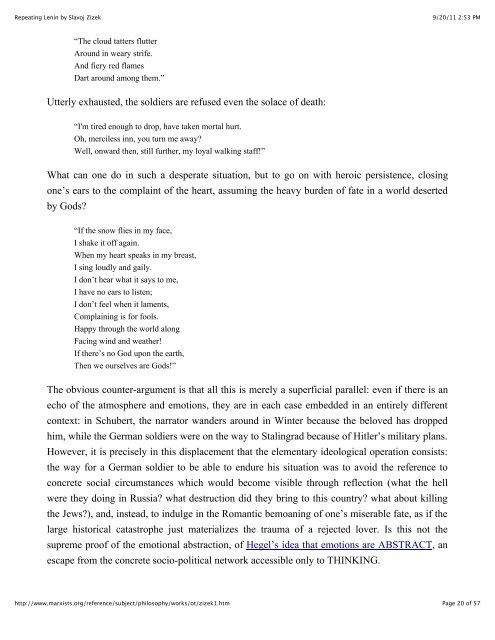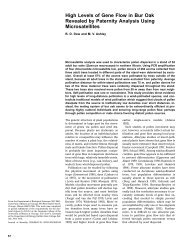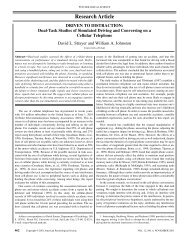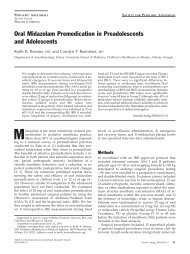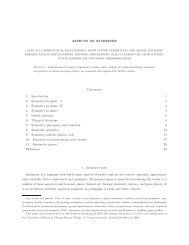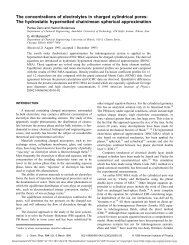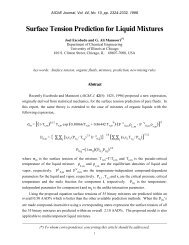Repeating Lenin by Slavoj Zizek
Repeating Lenin by Slavoj Zizek
Repeating Lenin by Slavoj Zizek
You also want an ePaper? Increase the reach of your titles
YUMPU automatically turns print PDFs into web optimized ePapers that Google loves.
<strong>Repeating</strong> <strong>Lenin</strong> <strong>by</strong> <strong>Slavoj</strong> <strong>Zizek</strong><br />
9/20/11 2:53 PM<br />
“The cloud tatters flutter<br />
Around in weary strife.<br />
And fiery red flames<br />
Dart around among them.”<br />
Utterly exhausted, the soldiers are refused even the solace of death:<br />
“I'm tired enough to drop, have taken mortal hurt.<br />
Oh, merciless inn, you turn me away?<br />
Well, onward then, still further, my loyal walking staff!”<br />
What can one do in such a desperate situation, but to go on with heroic persistence, closing<br />
one’s ears to the complaint of the heart, assuming the heavy burden of fate in a world deserted<br />
<strong>by</strong> Gods?<br />
“If the snow flies in my face,<br />
I shake it off again.<br />
When my heart speaks in my breast,<br />
I sing loudly and gaily.<br />
I don’t hear what it says to me,<br />
I have no ears to listen;<br />
I don’t feel when it laments,<br />
Complaining is for fools.<br />
Happy through the world along<br />
Facing wind and weather!<br />
If there’s no God upon the earth,<br />
Then we ourselves are Gods!”<br />
The obvious counter-argument is that all this is merely a superficial parallel: even if there is an<br />
echo of the atmosphere and emotions, they are in each case embedded in an entirely different<br />
context: in Schubert, the narrator wanders around in Winter because the beloved has dropped<br />
him, while the German soldiers were on the way to Stalingrad because of Hitler’s military plans.<br />
However, it is precisely in this displacement that the elementary ideological operation consists:<br />
the way for a German soldier to be able to endure his situation was to avoid the reference to<br />
concrete social circumstances which would become visible through reflection (what the hell<br />
were they doing in Russia? what destruction did they bring to this country? what about killing<br />
the Jews?), and, instead, to indulge in the Romantic bemoaning of one’s miserable fate, as if the<br />
large historical catastrophe just materializes the trauma of a rejected lover. Is this not the<br />
supreme proof of the emotional abstraction, of Hegel’s idea that emotions are ABSTRACT, an<br />
escape from the concrete socio-political network accessible only to THINKING.<br />
http://www.marxists.org/reference/subject/philosophy/works/ot/zizek1.htm<br />
Page 20 of 57


